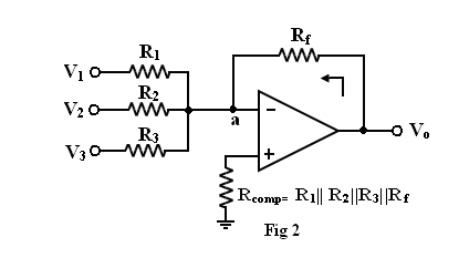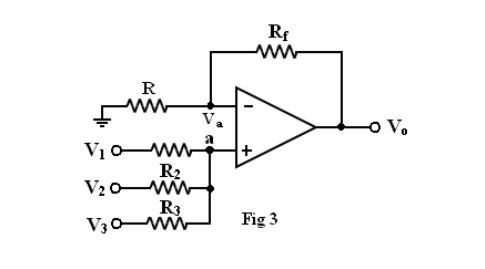Chapter: Linear Integrated Ciruits : Application of Op-Amp
Summing Amplifier
Summing Amplifier:
Op-amp
may be used to design a circuit whose output is the sum of several input
signals. Such a circuit is called a summing amplifier or a summer.
An
inverting summer or a non-inverting summer may be discussed now.
1. Inverting Summing Amplifier

A typical
summing amplifier with three input voltages V1, V2 and V3
three input resistors R1, R2, R3 and a
feedback resistor Rf is shown in figure 2.
The
following analysis is carried out assuming that the op-amp is an ideal one,
that is, AOL = ∞. Since the input bias current is assumed to be
zero, there is no voltage drop across the resistor Rcomp and hence
the non-inverting input terminal is at ground potential.
To find
Rcomp, make all inputs V1 = V2 = V3 = 0. So
the effective input resistance Ri = R1 || R2
|| R3. Therefore, Rcomp = Ri || Rf = R1
|| R2 || R3 || R,f.
2. Non-Inverting Summing
Amplifier:

A summer
that gives a non-inverted sum is the non-inverting summing amplifier of figure
3. Let the voltage at the (-) input teriminal be Va.
which is
a non-inverting weighted sum of inputs.
Let R1 = R2 = R3 = R = Rf/2, then Vo = V1+V2+V3
Related Topics